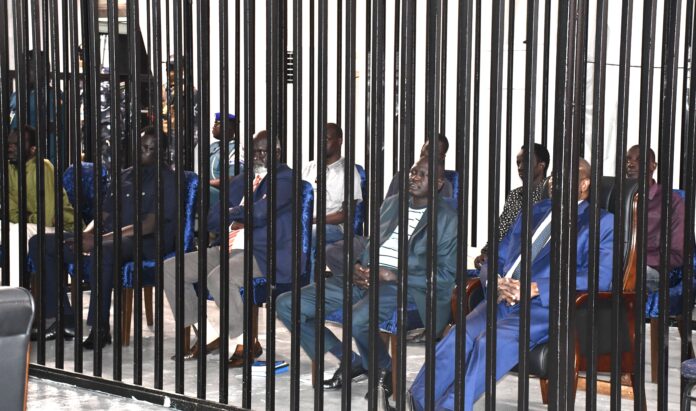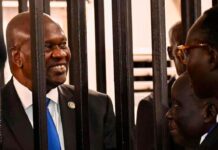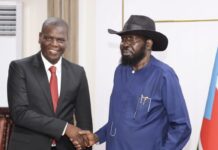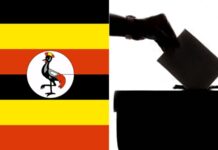The fifth session of the ongoing court proceedings in the Nasir case took place today in Juba, with the prosecution team reading statements from four of the accused. The presiding judge adjourned the hearing to Friday, 3rd October 2025.
Wednesday’s session saw the court hear statements from four of the accused, as presented by the investigative team. These statements originally recorded at the time of arrest were read aloud and pertained to Puot Kang Chuol, Minister of Petroleum, General Gabriel Duop Lam, Mam Pal Dhuor and Gatwich Lam Puoch
Presiding Judge James Alala Deng postponed the proceedings to allow the investigative committee additional time to present the remaining testimonies, including that of Dr. Machar. The court will reconvene Friday to continue the review of case materials.
The eight defendants are accused of involvement in the deadly Nasir attack, which took place between March 3 and 7, 2025, in Upper Nile State. The assault resulted in the deaths of over 250 people, including Major General David Majur Dak, numerous South Sudan People’s Defence Forces (SSPDF) soldiers, and two United Nations aviation personnel whose helicopter was reportedly shot down near the conflict zone.
The attack was carried out by the White Army historically comprised of armed Nuer youth. Prosecutors allege that the accused played various roles in supporting the operation, although specific charges and individual responsibilities have not yet been publicly disclosed. A claims the accused defense lawyers denied.
All eight suspects were arrested in March 2025 and have remained in custody since accept Dr. Riek Machar Teny who was placed under house confinement.
Legal proceedings were officially launched on September 11, 2025, by the Minister of Justice and Constitutional Affairs, Dr. Joseph Geng Akech, who affirmed the government’s commitment to due process and accountability.
Notably, media outlets were barred from live streaming or recording audio of today’s session, with the court citing the sensitivity of the testimonies and national security concerns.
Public interest in the trial continues to grow, as the outcome could have significant political and legal implications for the SPLM-IO and the broader peace process in South Sudan.
The case has attracted significant attention both domestically and internationally and is widely seen as a critical test of South Sudan’s judicial independence, the rule of law, and the state’s capacity to pursue justice amid political tension.





